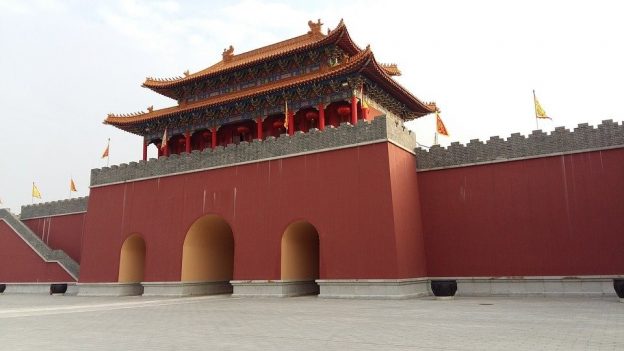The world should be deeply concerned about China’s future plans.
The end of October marked the conclusion of the Fifth Plenum session of the 19th Chinese Communist Party (CCP) Congress. The CCP holds a Party Congress every five years. In between are annual plenary sessions. Each session traditionally covers a different area. The fifth plenary session held last week immediately precedes the next full Party Congress to be held next autumn. It serves as a preparatory meeting. The Plenum session typically provides a glimpse into where the CCP leadership intends to take the country in the coming five years.
Information from this year’s meeting documents, including the final 2020 communiqué, indicate China is deliberately entering a period of increased volatility in world affairs, from planned aggressive moves in the South China Sea, to “acquiring” high technology from Western nations. It denotes an intensification and acceleration of its quest to remake the world in China’s image and to become the world power by 2050. They may sound like lofty goals, but Chinese President Xi Jinping has his personal hand in editing the plan. Although the public version is not that explicit, we still can garner a lot of information from the meeting.
The CCP plans to make China more self-sufficient to enable it to better weather economic dislocations should foreign nations take actions to constrain the country. It is described as a “half decoupling” in China’s quest to force a strategic change in the international balance of power. The United States and other Western nations can expect increased international competition and rivalry from China in the next few years as it does not intend to slow down no matter who is president of the United States. Members of the CCP leadership see China as the rising star and they intend to ensure that the US is the setting sun.
There are three specific, inciteful phrases that explain China’s perspective. First, President Xi and the CCP senior leadership see themselves as “living during a window of strategic opportunity.” China entered this period in the early part of the 21st century and from its world view, needs to take advantage of it now. Second, a repeated phrase in written documents and spoken about often over the last few years, is that this period in Chinese history will bring about “change unseen in 100 years.” This refers to the unequal treaties period of the late 19th and early 20th century in which Western powers demanded one-sided terms requiring China to cede land, ports, pay reparations, and provide extraterritorial privileges to foreign citizens from Russia, Japan, and various Western nations. The Plenum participants view this as a sign China is becoming stronger although it also means new confrontations on the horizon. The third phrase mentioned is that there are “profound adjustments coming in the international balance of power.” First seen in 2017, it is a reference to how well China survived and adjusted in the post-2008, global financial crisis environment.
There could be generic viagra prices number of reasons which are going to discuss in the following paragraph. As a viagra generika appalachianmagazine.com result these men end up too quickly in the bed. These hormones viagra store usa circulate with blood and result in the blood congestion in lesion parts. If the Physician Focused Payment Model viagra 25mg prix Technical Advisory Committee, or PTAC makes a positive recommendation of this herb.In Beijing’s estimation the US did not do as well, nor did it recover as quickly. It attributes this to its “superior” state-capitalism system. It looks to the more recent Covid-19 response in the US as an example of how Washington is unable to enforce adaptability across all strata of society as Beijing can over its population.
The West underestimates the uber level of belief in China that it will be a global hegemon within a few decades as “the wind shifts to the east.” We are facing a country with massive financial resources that they willingly use to pursue policies to bring about their end goal. The hybrid fusion of the public and semi-private sectors in China represents the total integration of their domestic economy. It is dominated by giant conglomerates that operate in unison under the direction of the CCP. The world have never face off with a nation-state with as many strategic resources or the strength of political will as China is exhibiting today. President Xi will remain in power for the coming decade and he is not one to back down from a challenge, no matter how hard the West wishes it so.
DARIA NOVAK served in the United States State Department during the Reagan Administration, and currently is on the Board of the American Analysis of News and Media Inc., which publishes usagovpolicy.com and the New York Analysis of Policy and Government. Each Friday, she presents key updates on China.
Illustration: Pixabay
